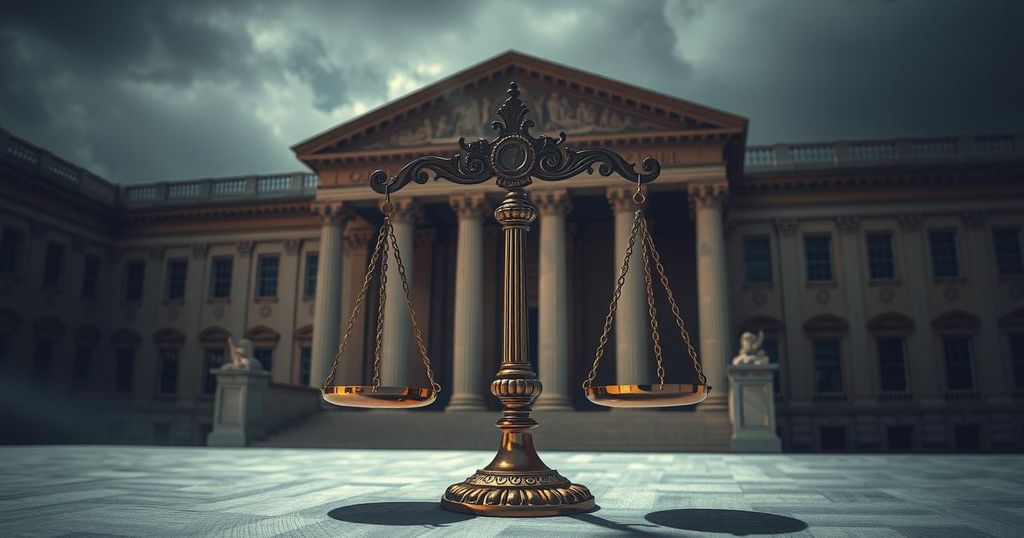The Wisconsin Supreme Court election, scheduled for April 1, 2025, features liberal Susan Crawford versus conservative Brad Schimel for a crucial seat that could influence important issues like abortion rights. Attracting historic funding from affluent donors and political action committees, the election’s outcome will reflect the evolving political landscape in a volatile swing state during Donald Trump’s presidency.
The upcoming Wisconsin Supreme Court election is anticipated to become a prominent political showdown cost-wise and ideologically, with a single seat at stake that could influence the court’s 7-member structure and the enforcement of a 19th-century abortion ban. The election sees liberal Susan Crawford facing conservative Brad Schimel and reflects the electorate’s perception of political trends early in Donald Trump’s presidency. The significance of this election lies in its implications for critical societal issues like abortion rights and public-sector union protections.
With spending expected to surpass the $51 million mark of the previous Supreme Court election, politically active billionaires are heavily financing the campaigns. The nonpartisan election nonetheless attracts substantial political investment, with major donors from both sides lobbying to secure their interests in the election outcome. Advertisements supporting both candidates will begin airing soon, including $1.6 million spent by Elon Musk’s affiliated group.
Political analysts termed this election a critical test of party dynamics within the state. Wisconsin’s unique political landscape, with a Democratic governor and Republican-held legislature, positions the Supreme Court as a decisive factor in major political debates. Barry Burden, a political scientist at the University of Wisconsin-Madison, stated, “It’s become a place where many hot-button issues that people care about get decided.”
High-profile Democratic figures are already gearing up to support Crawford’s campaign, highlighting the strong political mobilization against Schimel’s conservative policies. In contrast, Republicans argue that a liberal court would jeopardize established legislative decisions, framing the election as a battle between judicial activism and conservative constitutional interpretation. Wisconsin State Assembly majority leader Tyler August remarked on the stakes involved, claiming, “This open seat is really going to determine if we’re going to have a court that is run by activist liberal ideologues.”
The election takes place in a state known for its critical role in national politics, often swinging preferences in presidential elections. Recent historical data show Wisconsin voting patterns alternating between Democratic and Republican candidates, underpinning the importance of local elections that reflect broader national sentiments. Both parties view this election as not only a test of individual candidates but also a measure of grassroots enthusiasm for future electoral contests.
If Crawford prevails, the liberal majority on the court would be retained; however, a win for Schimel would return conservative control. The outcome will directly affect significant issues, including the pending abortion ban from 1849 and public-sector collective bargaining rights. Democrats and Republicans vie to convey the stakes of this election to their voter bases, with each party attempting to drum up support in an intensely competitive climate.
As the campaigns advance, notable financial contributions continue to flood in from various billionaires and political action committees, turning the race into one dominated by heavy financial investment from both party sides. This contest serves not only as an election for a judicial seat but also as a crucial marker for broader electoral strategies of both parties leading into future election cycles. The April 1 election promises to reflect the prevailing sentiments of Wisconsin voters on pivotal legal and political questions.
The Wisconsin Supreme Court election is set to become a pivotal and costly political battle, determined by deep ideological divides and significant financial investments from both major parties. With critical issues such as abortion rights and union protections at stake, the election will serve as a reflective measure of voter sentiment in this essential swing state. Its outcome could herald significant implications for the judicial landscape, resonating well beyond Wisconsin’s borders.
Original Source: www.cnn.com






